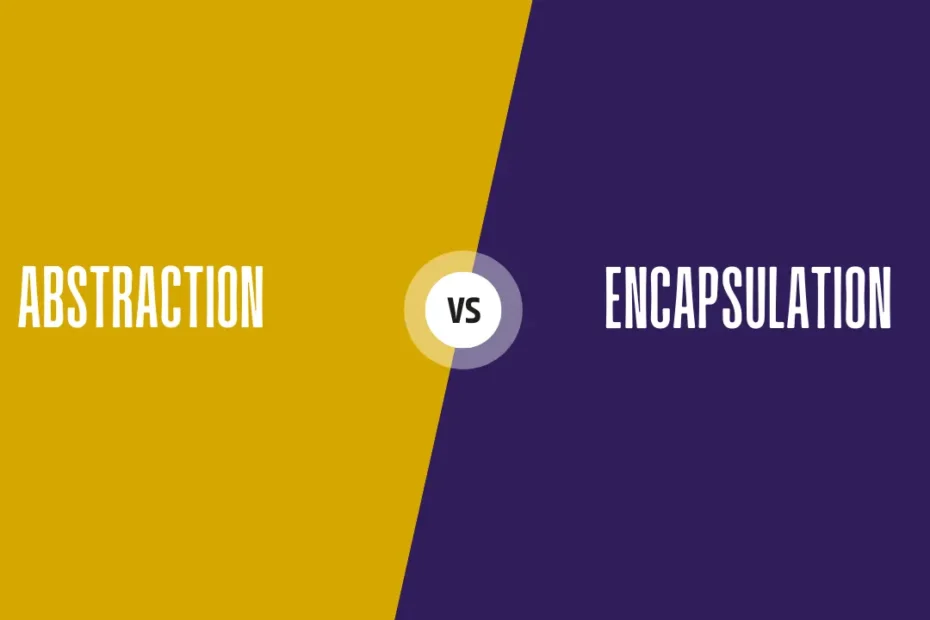Abstraction and encapsulation in C# are two important concepts in object-oriented programming. They serve different purposes but are closely related and often used together to create well-designed and maintainable software. Here is the difference between abstraction and encapsulation in c#–
Difference Between Abstraction and Encapsulation in C#
Abstraction
Abstraction is the process of simplifying complex reality by modeling classes based on the essential properties and behaviors they exhibit. It involves focusing on the essential features of an object while ignoring unnecessary details. Abstraction allows you to create a high-level view of an object’s functionality and interactions, making it easier to understand and work with.
In C#, you achieve abstraction through abstract classes and interfaces. Abstract classes define a common template for derived classes, while interfaces define a contract that classes must adhere to. Abstraction helps in creating a clear separation between the interface of a class (what it does) and its implementation (how it does it).
Encapsulation
Encapsulation is the practice of bundling data (attributes) and the methods (functions) that operate on that data into a single unit, known as a class. It involves hiding the internal details of how a class works and providing a well-defined interface through which external code can interact with the class. Encapsulation helps in controlling access to the internal state of an object and prevents unintended interference or modification of its data.
In C#, you achieve encapsulation by using access modifiers (public, private, protected, internal) to control the visibility of class members. Private members are only accessible within the class itself, ensuring that the internal implementation details are hidden from external code.
Difference
- Abstraction focuses on presenting only the relevant and essential aspects of an object’s behavior and attributes while hiding unnecessary details. It provides a higher-level view of objects and their interactions.
- Encapsulation focuses on bundling data and methods that operate on that data into a single unit (class), and it controls the visibility of class members to ensure that the internal implementation is not exposed to external code.
Relationship
Abstraction and encapsulation often work hand in hand. Abstraction defines the public interface of a class (the methods and properties that the outside world interacts with), while encapsulation ensures that the internal implementation details of that class are hidden from direct access, preserving the integrity of the object’s state and behavior.
Conclusion
In well-designed object-oriented programs, abstraction and encapsulation together contribute to modular and maintainable code by allowing you to manage complexity, reduce dependencies, and change implementations without affecting external code.

Pingback: 5 Major Difference Between Delegates and Events in C#